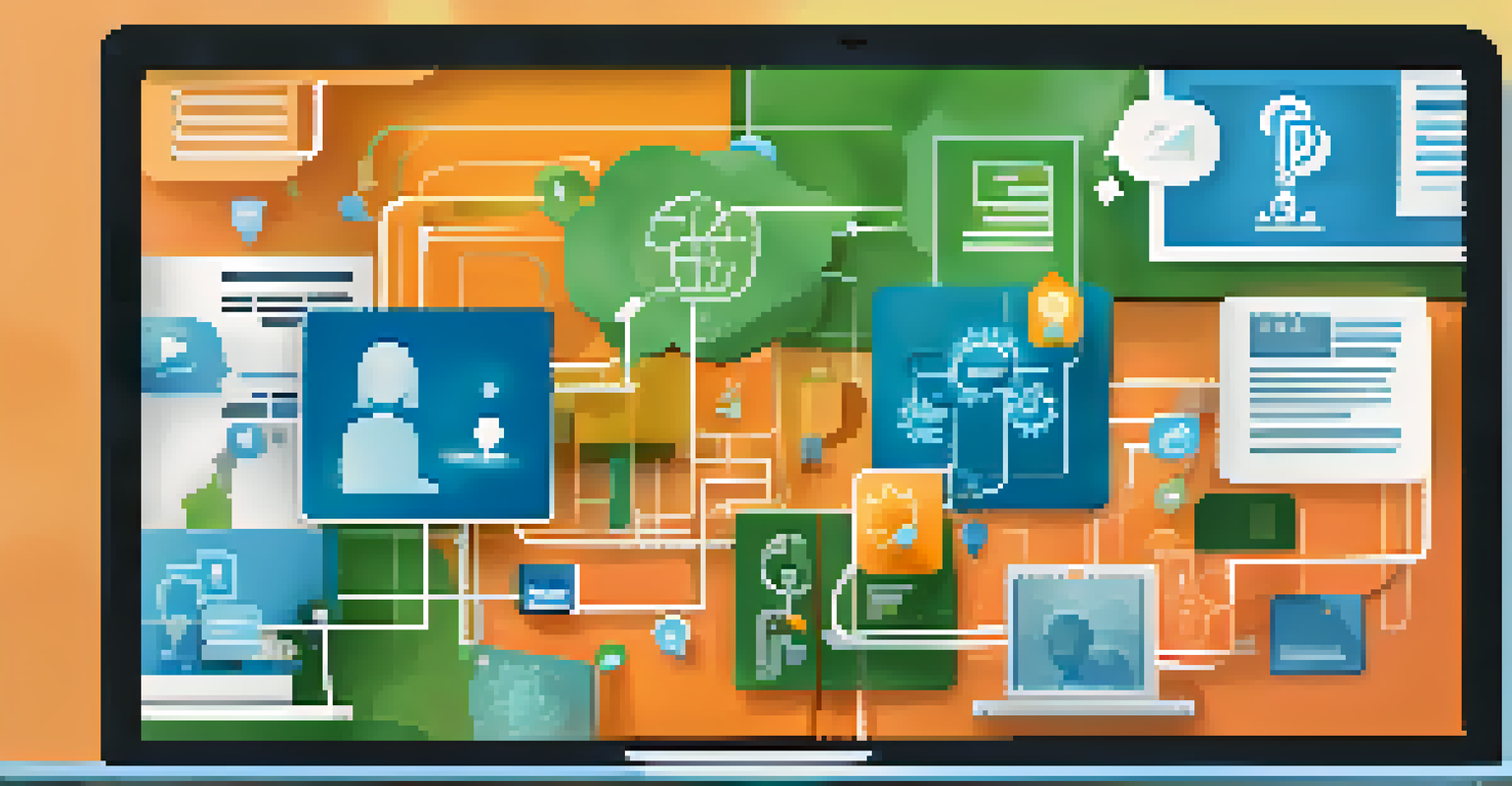Balancing Work and Professional Development Pursuits Effectively

Understanding the Importance of Balance in Life
Balancing work and professional development is crucial for long-term success. When we prioritize both, it leads to increased job satisfaction and personal fulfillment. Think of it like nurturing a garden; both the flowers (work) and the soil (development) need attention to thrive together.
Success is not the key to happiness. Happiness is the key to success. If you love what you are doing, you will be successful.
In today’s fast-paced world, the lines between work and personal growth often blur. By recognizing this, we can create intentional boundaries that allow us to flourish in both areas. For instance, dedicating time to learn a new skill can enhance your job performance, making the two pursuits interdependent.
Ultimately, achieving this balance helps prevent burnout and promotes a healthier lifestyle. When we invest in our development while fulfilling work responsibilities, we set ourselves up for a more rewarding career journey.
Setting Clear Goals for Work and Development
To effectively balance work and professional development, start with clear, actionable goals. Think of your goals as a roadmap that guides your journey; without them, you may wander aimlessly. For example, setting a goal to complete a certification within a specific timeframe can provide a structured path.

Aligning these goals with your career aspirations is equally important. If you aspire to move into a leadership role, seek out development opportunities that enhance your leadership skills. This alignment ensures your efforts in personal growth directly benefit your professional life.
Balance Work and Development
Achieving a balance between work responsibilities and personal development is essential for long-term success and job satisfaction.
Regularly reviewing and adjusting your goals based on your experiences can also keep you on track. This adaptability allows you to remain focused on what truly matters, making it easier to manage both work duties and development pursuits.
Prioritizing Time Management for Success
Time management is a cornerstone of balancing work and professional development. By effectively managing your time, you can create space for both responsibilities and growth. Consider using tools like calendars or time-blocking techniques to allocate specific periods for learning.
The future depends on what you do today.
Another effective strategy is to identify your peak productivity hours. If you work best in the morning, dedicate that time to tackle work tasks, leaving afternoons for personal development. This approach ensures that your energy is spent where it matters most.
Additionally, don’t hesitate to delegate or ask for help when needed. By sharing responsibilities, you free up time for your development pursuits, ultimately leading to a more balanced and fulfilling routine.
Leveraging Online Learning Platforms and Resources
In today's digital era, online learning platforms offer a wealth of resources for professional development. Websites like Coursera, LinkedIn Learning, and Udemy provide flexibility, allowing you to learn at your own pace. This flexibility means you can integrate learning into your busy schedule seamlessly.
Choosing courses that are relevant to your current job or future aspirations can provide immediate benefits. For instance, if you work in marketing, a course on digital advertising can enhance your skills and make you more effective in your role. This direct application of learning helps reinforce the importance of development.
Set Clear, Actionable Goals
Establishing specific goals serves as a roadmap, helping you align your professional development with your career aspirations.
Moreover, engaging with online communities can foster networking opportunities. Sharing insights and experiences with others can enrich your learning journey and introduce you to new perspectives, making the process even more rewarding.
Incorporating Professional Development into Daily Work
Finding ways to integrate professional development into your daily work can be incredibly beneficial. For example, consider setting aside a few minutes each day for reading industry-related articles or attending webinars. These small actions add up and can significantly enhance your knowledge over time.
Additionally, seeking feedback from colleagues or supervisors can serve as a valuable development tool. Constructive feedback helps you identify areas for improvement and encourages growth. It’s like having a personal coach guiding you through your professional journey.
Finally, look for opportunities to apply new skills directly in your work tasks. This hands-on approach not only reinforces what you’ve learned but also showcases your commitment to growth, benefiting both you and your employer.
Building a Supportive Network for Growth
A strong professional network can be a game-changer in balancing work and development. Surrounding yourself with like-minded individuals creates a support system that encourages growth. Consider joining industry-related groups or forums where you can share insights and experiences.
Mentorship is another powerful way to enhance your professional development. Finding a mentor who can provide guidance and share their knowledge can accelerate your growth. This relationship often leads to new opportunities and insights that you might not have encountered alone.
Leverage Online Learning Resources
Utilizing online learning platforms allows for flexible and relevant skill development that can enhance your current job performance.
Networking doesn’t just provide support; it also opens doors to new learning experiences. Engaging with others in your field can expose you to different strategies and perspectives, enriching your own professional development journey.
Staying Motivated Amidst Busy Schedules
Staying motivated while balancing work and professional development can be challenging, especially during busy periods. One effective strategy is to celebrate small wins along the way. Acknowledging your progress, no matter how minor, can boost your motivation and keep you focused on your goals.
Another approach is to remind yourself of your ‘why.’ Reflecting on the reasons behind your professional development pursuits can reignite your passion. This intrinsic motivation often serves as a powerful driving force during demanding times.

Lastly, don’t forget to take breaks and recharge. Overworking can lead to burnout, which stifles motivation. By prioritizing self-care and downtime, you’ll return to your tasks with renewed energy and enthusiasm.
Evaluating Progress and Making Adjustments
Regularly evaluating your progress is essential to maintaining balance in your work and development pursuits. Set aside time to reflect on what you’ve accomplished and identify areas where you may need to improve. This self-assessment acts as a compass, guiding your future efforts.
If you find that certain strategies aren’t yielding results, don’t be afraid to make adjustments. Flexibility is key; sometimes, what works for one person may not work for another. Experimenting with different methods can lead to discovering what truly resonates with you.
Ultimately, viewing this journey as an ongoing process can alleviate pressure. Embracing the idea that growth takes time allows you to enjoy the ride, fostering a healthier relationship with both work and professional development.